“Mr. H. E. Manwaring, the very capable boniface, who presides over the destinies of the Grand Hotel at Yokohama, is one of the men whose name is known to travelers all over the world. ‘Manwaring? Oh, yes! You mean Manwaring of the Grand, Yokohama, of course!’ And it is ‘of course,’ of course. I have no idea of the birthplace of Manwaring, but I can tell you that if there are any more at home like him, it must be the home of hospitality and good cheer.
“I have been told that Manwaring’s experience in hotel work and management extend from the Atlantic to the Pacific, in the United States, and that long before he became famous as a hotel man in the Orient he was pointed out as a rising man in our own dear land. Be that as it may, it concerns me not, for my experience is my only guide, and I dub him a Prince of Hosts and his caravansary ideal in its comforts.”
– The Overland Monthly, January 1910
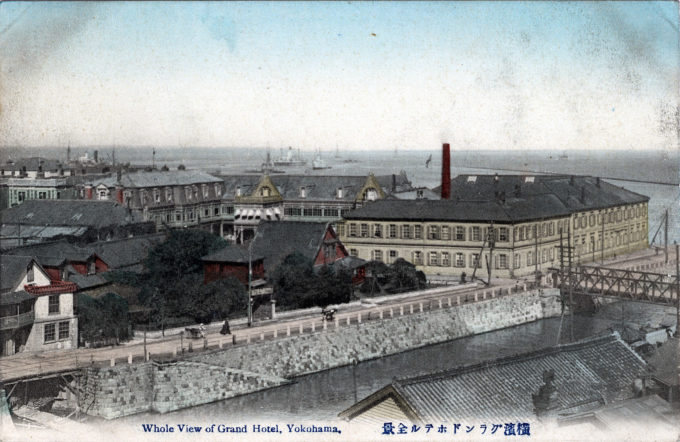
“Whole view of Grand Hotel”, Yokohama, c. 1910. The hotel from the rear (center), looking out upon Yokohama harbor.
The Grand Hotel opened on August 16, 1873, on the Yokohama Bund, overlooking the harbor, and was soon considered the height of Western culture and elegance in Japan; “the place to stay” for well-monied travelers. It can no longer be determined with certainty who designed the Grand Hotel but the architecture has occasionally been attributed to R. P. Bridgens, the American architect who designed both of Japan’s first railway stations at Yokohama (Sakuragicho) and Shimbashi.
Among the Grand Hotel’s illustrious guests, English author Rudyard Kipling was a visitor and was amazed by the printed menus (handwritten menus at the time were the norm), and by the customers ordering food by citing the number assigned to dishes listed on the menu.
“Standing on the verandah of the Grand Hotel, which is the largest and most commodious establishment of the kind in the East, and looking north, the bay with its shipping is stretched expansively before us.
“Picturesque junks and fishing boats glide to and fro, and steamships from many nations move like huge beings breaking through the purple mist of the Spring. On the west and north the hills of Kanagawa, Namamugi, and Kawasaki stand Serene, and like distant clouds in the north-east are seen the mountains of Shimosa and Awa.”
– The Grand Hotel Limited: Guide Book for Yokohama and Immediate Vicinity, by N. Amenomori, 1909
“The ‘Grand’ is a Hotel of Distinction with all the superlative excellence of American ideals, and much of the Japanesy charm of the opulent East, yet with moderate charges.
“It is as famous for its hospitality as for its perfect service and unrivalled cuisine. It is one of the most inviting and homelike hotels of the world, and one of the best liked. To world-travelers the ‘Grand’ is as much a feature of Japan as Fuji-yama itself, and those who he would get the most enjoyment out of their trip to Japan make it their headquarters while there.
“Its gay and brilliant lobby is a celebrated rendezvous for the surging tides of travel that sweep ceaselessly round the world to and from the Orient and the Occident, as well as the centre of the joyous social life of Yokohama.
“Though located midway between the business and its residential sections of the port, the ‘Grand’ stands in a cherry-embowered garden of its own, flanked on two sides by the sea. From the famous Dining Room and the broad, glassed-in verandas one looks over hundreds of square miles of junk-flecked sea so tenderly blue, so drowsy and so tranquil that the view alone would take the nerve strain out of the most overworked person.”
– Terry’s Japanese Empire: A Handbook for Travellers, T. Philip Terry, 1914
- Flag-bedecked Grand Hotel, Yokohama, in anticipation of the Great White Fleet arrival (1908).
- Harbor-facing exterior of the Grand Hotel, Yokohama, c. 1910.
- Grand Hotel, lobby, Yokohama, c. 1910.
- Tea service at the Grand Hotel, Yokohama, c. 1910.
- Corner of the Lounge, Grand Hotel, c. 1910.
- Harbor-facing lounge at the Grand Hotel, Yokohama, c. 1910.
- View from Lounge, Grand Hotel, c. 1910.
- Cherry blossoms in the courtyard at the Grand Hotel, Yokohama, c. 1910.


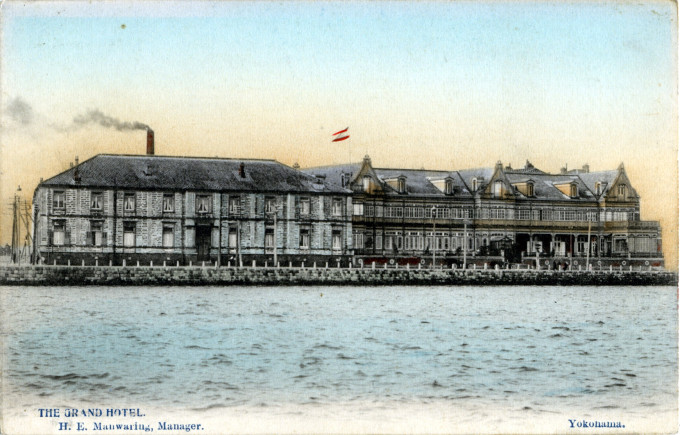
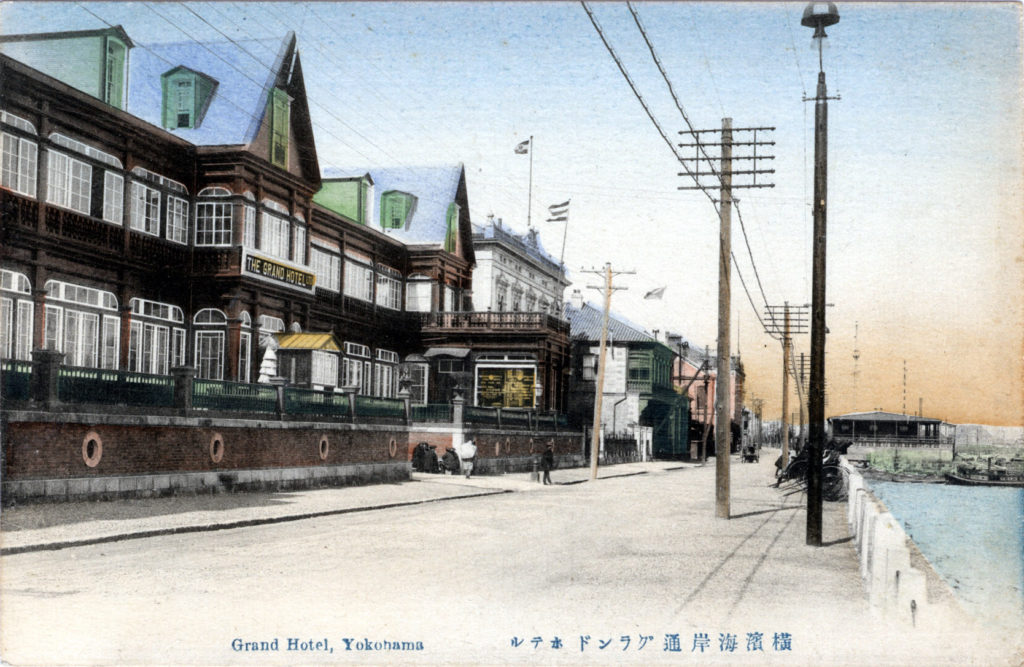
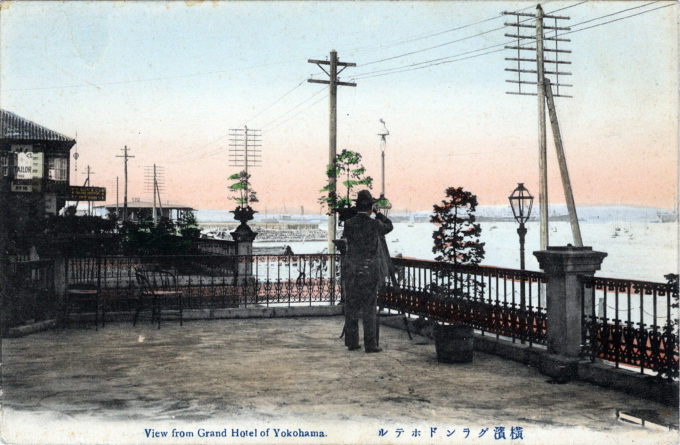
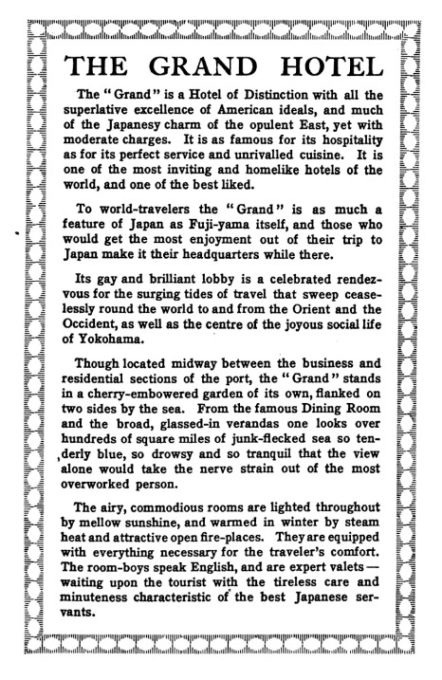
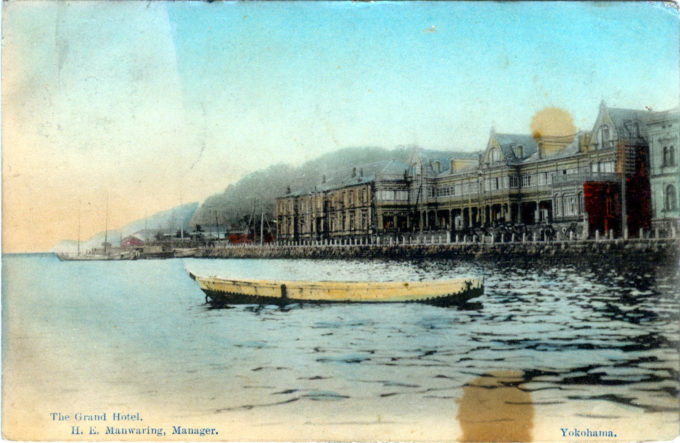
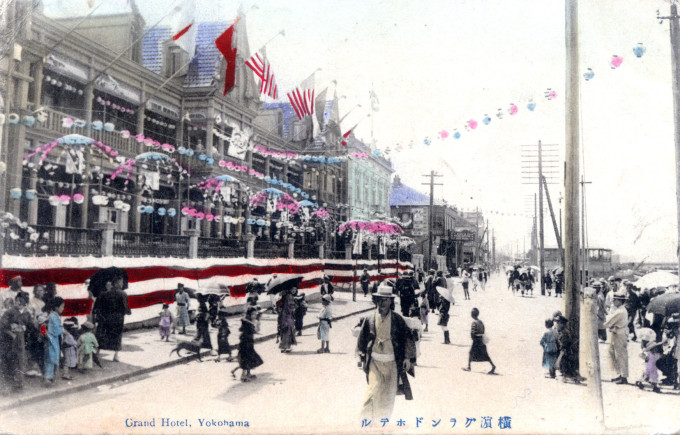
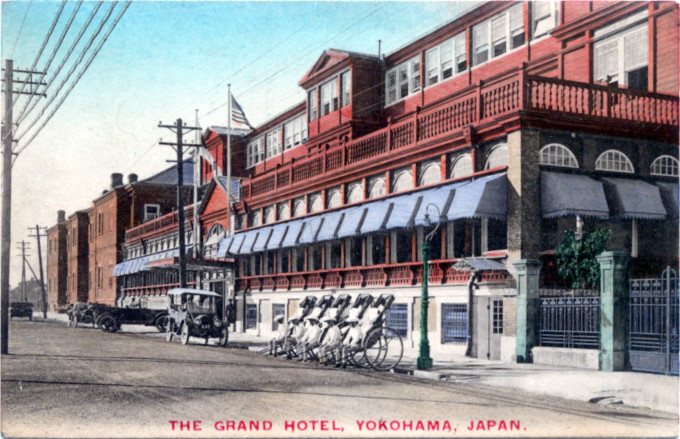
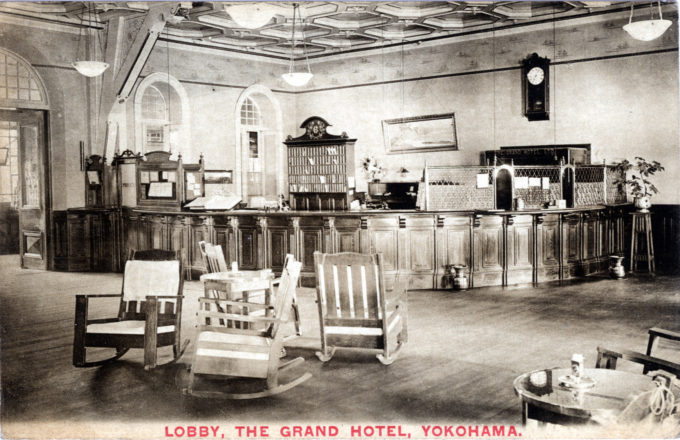
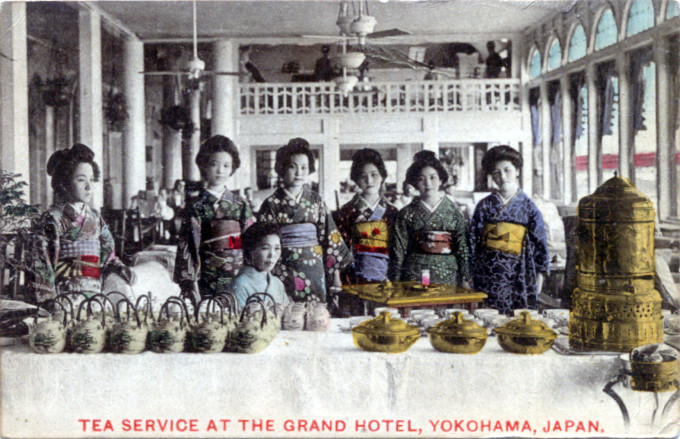
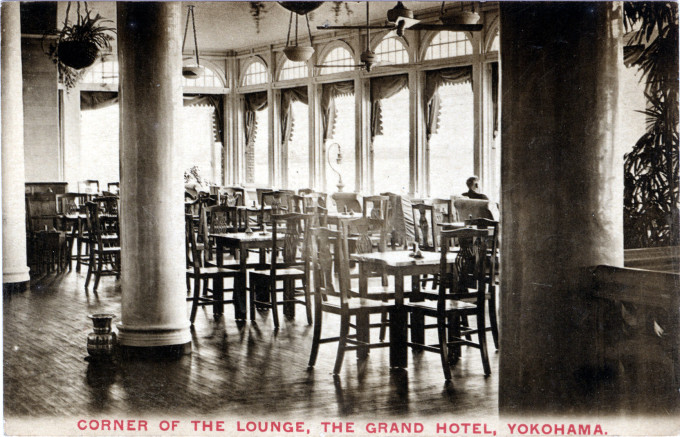
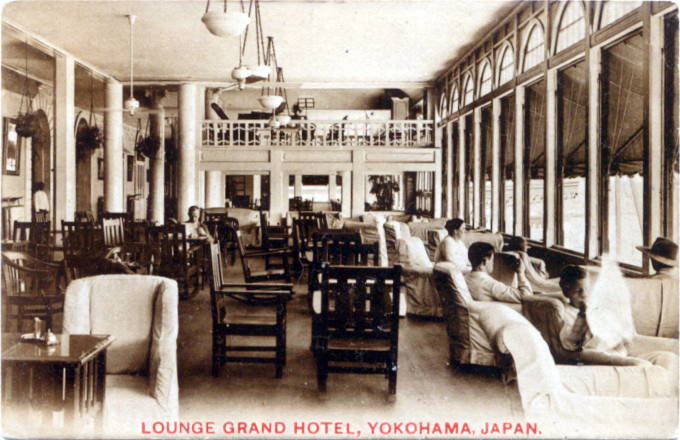
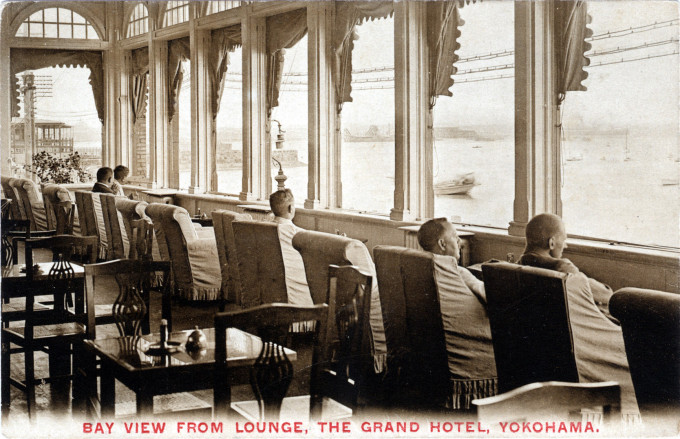
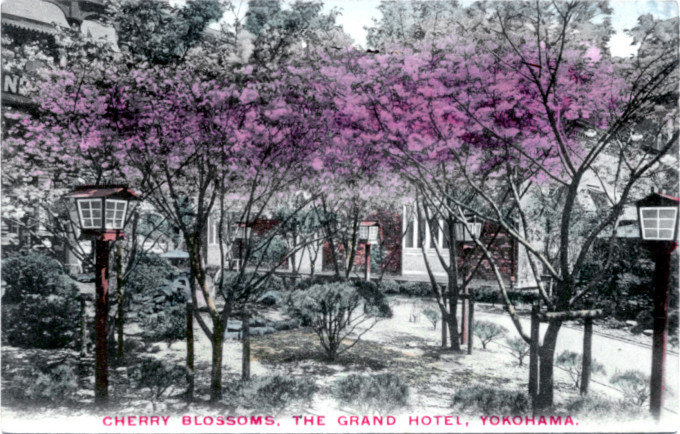
Pingback: Yokohama Pier, c. 1920. | Old Tokyo
Pingback: Yokohama Bluff, c. 1910. | Old Tokyo
Pingback: 100 Steps Teahouse, Yokohama, c. 1910. | Old Tokyo
Pingback: Mississippi Bay, Yokohama, c. 1910. | Old Tokyo
Pingback: Lobby, Hotel New Grand, Yokohama, c. 1940 | Old Tokyo
Pingback: Marine Tower, Yokohama, c. 1965. | Old Tokyo
Pingback: French Consulate, Yokohama, c. 1910. | Old Tokyo
Pingback: Circling the Lotus Peak – LADY MARY'S CHAUFFEUR
Pingback: Nankinmachi (Chinatown), Yokohama, c. 1910. | Old Tokyo
Pingback: Make This Cocktail: Bamboo – SAMMITT
Pingback: Commemoration of the 50th Anniversary of the Opening of Yokohama Port, 1909. | Old TokyoOld Tokyo